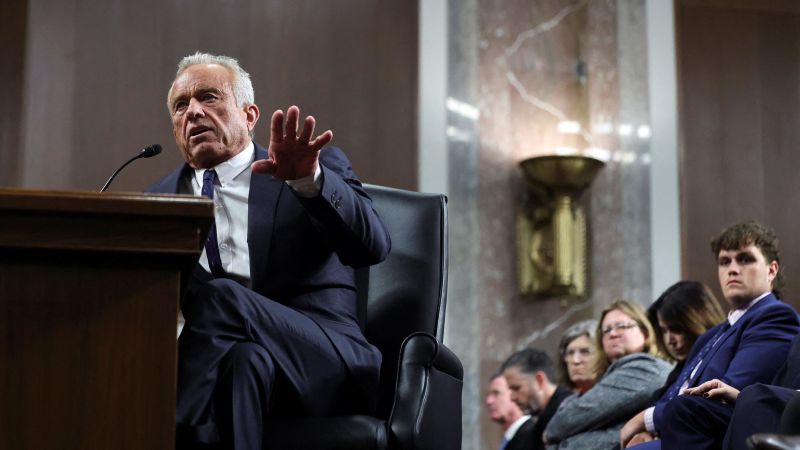Caught on Record: RFK Jr.'s Denial Unravels Amid Contradictory Statements

During a tense confirmation hearing on Wednesday, Democratic senators repeatedly challenged Robert F. Kennedy Jr. about his past controversial statements. The nominee for secretary of health and human services found himself in the hot seat, skillfully deflecting accusations by either flatly denying making the remarks or claiming uncertainty about their origin.
As senators pressed him with specific quotes and allegations, Kennedy Jr. maintained a composed demeanor, carefully navigating the politically charged questioning. Each time a controversial statement was brought up, he responded with a mix of denial and strategic ambiguity, attempting to distance himself from potentially damaging past comments.
The hearing highlighted the intense scrutiny faced by presidential nominees, with Democratic lawmakers determined to expose potential inconsistencies in Kennedy Jr.'s previous public statements. Despite their persistent efforts, the nominee remained largely unruffled, repeatedly pushing back against the characterizations of his past rhetoric.
The back-and-forth exchange underscored the high-stakes nature of confirmation hearings, where a candidate's entire public record comes under microscopic examination before potentially assuming a critical government position.

